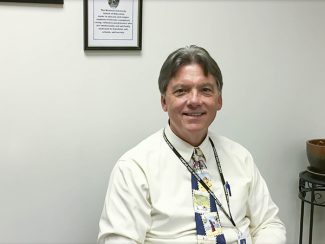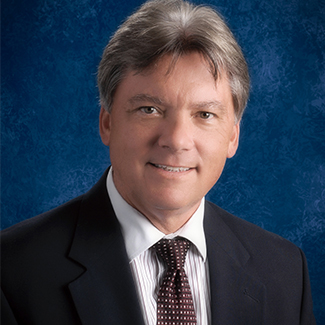Assistant Professor of Education John Burke is no stranger to academia. He has been teaching education courses at Newman University since 2012, has been a Superintendent for 32 years — currently at USD 261, Haysville, Kan. — and was a high school social studies teacher before that.
Recently, Burke was invited by the Education Advisory Board (EAB) to take part in a roundtable discussion located in Washington D.C. The EAB exists to research, study and solve the bigger problems facing academic institutions and their leaders. Only 21 participates in the United States received the phone call to join the session, and Burke said he was excited to accept.

Burke’s main role in the process was to offer up the issues that “keeps education leaders up at night” and to discuss with small groups other issues that were brought to the table. “This was a fact-finding mission on their part. They found people who’ve been at this awhile.”
Some of the issues that came up were related to testing, parental involvement, teacher quality, teacher shortage and gender.
“As it turns out, in many schools from across the country in many school districts, if you look at the top 20 percent of the students in the graduating class, three out of four are girls. If you look at the bottom of the class, three out of four are boys,” said Burke. “But if you look at how we treat boys and girls in kindergarten or even pre-school, you’ll see a difference. Boys are typically more active than girls. And yet the classroom is set up as ‘sit down and be compliant.'”
This was one of the issues Burke brought to the table in D.C.
“So you end up with boys that don’t like that very much. And so they end up acting like boys. And when they act like boys, they get sent to the office,” he explained. “And it’s all avoidable if we could treat everybody like you would an actively engaged learner, regardless of gender, and teach better and not turn off the boys, or the girls, who learn better that way and get them more engaged in school.”
The EAB will take Burke’s and other participants’ issues, and research ways to improve situations and learning environments. Burke explained that the EAB “finds the problems … and look at ‘how can we approach this, do the research, find the best practices to solve the problems,’ and then serve as consultants to provide solutions to the problems.”
His experience at the EAB roundtable only confirmed his feeling that districts throughout the country face common issues, no matter their location. Burke is looking forward to the follow-up that will take place in the next few weeks and hopes to be able to continue helping in any way he can. For now, he will continue working to make a difference in the Haysville and Newman communities.
“I love teaching. I’m a teacher at heart and so I view every experience as a teaching opportunity.”

